Tired of hyped up promises? We are too! So let's just get real...
NEXT EVENT DATE:
Wednesday 17th of July 2024 @ 10AM AEST (Sydney/ Melbourne)
OR Tuesday 16th of July @ 5PM PST (Los Angeles) | 8PM EST (New York)
A 40-Day at Home Intensive to Re-Form the Way You Are Motivated
Change Your Life By Daily Strengthening Your Four Highest Faculties Upon the Total Good
Participate Live With Other Likeminded Self-Actualizers and Author John Angheli
Get Re-Motivated and Re-Inspired at Depths of Being, You Never Thought Possible!
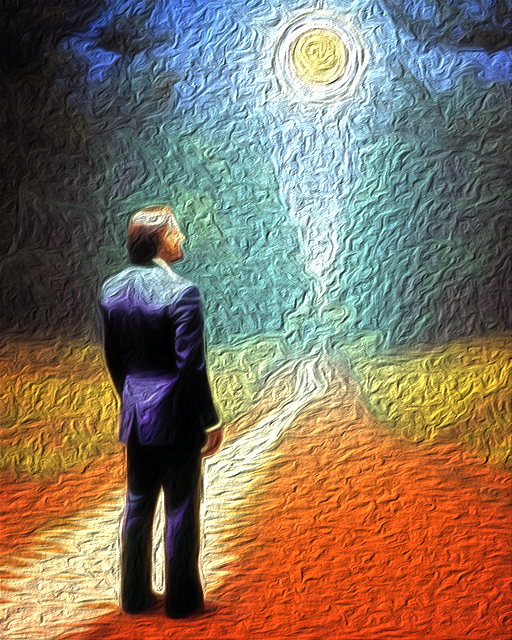 The iLifeChange Experiment is a 40-day mental and spiritual exercise program designed to strengthen our four highest powers of our mind. The sole objective of this program is to upgrade and integrate our motivational O.S. – the operational system behind our actions and decisions.
The iLifeChange Experiment is a 40-day mental and spiritual exercise program designed to strengthen our four highest powers of our mind. The sole objective of this program is to upgrade and integrate our motivational O.S. – the operational system behind our actions and decisions.
It is like a Chilla-Nashini, but done at home. Over a six-week period, we amplify the active ingredients that drive meaningful and lasting change – our highest four faculties – in order to reshape our motivational system.
This program is a practical application of the new science of Neuro-TetraDynamics. The term ‘Neuro’ refers to our unique nervous system as human beings, while ‘Tetra-Dynamics’ refers to the four powers that this nervous system is capable of expressing.
Why do this? Because meaningful and lasting life changes require ‘root cause’ solutions. Quick-fix, superficial attempts at reformation of one’s life do not work, precisely because they leave intact ‘the engine’ that is responsible for much addictive behavior and self-sabotage in the pursuit of the good.
The iLifeChange Experiment is a deep-seated life change solution that realigns the engine of your motivations in the pursuit of the highest good, at the ground level of your being.
This 40-day program happens live over a period of 6 weeks via video conferencing technologies. Hosted by John Angheli, here we participate in a 40-day collective masterminding experiment for ‘breakthrough thinking’.
Because we are a non-profit organization, the ticket to this event is just $795! So register now and make meaningful changes from the depths of your being.
There’s a Dirty Little Secret That Few People Talk About,
When It Comes to Making Changes…
Open almost any academic journal or blog article inside the social sciences, and you will not find a more common way to start an essay than to proclaim in one form or another that,
“We live amidst times of unprecedented change…”
I’ve lost count of how many times I’ve read this opening statement. And from this premise, the author will inevitably make the argument by the end that “society needs to change” or that some institutional “systemic change is needed”… etc.
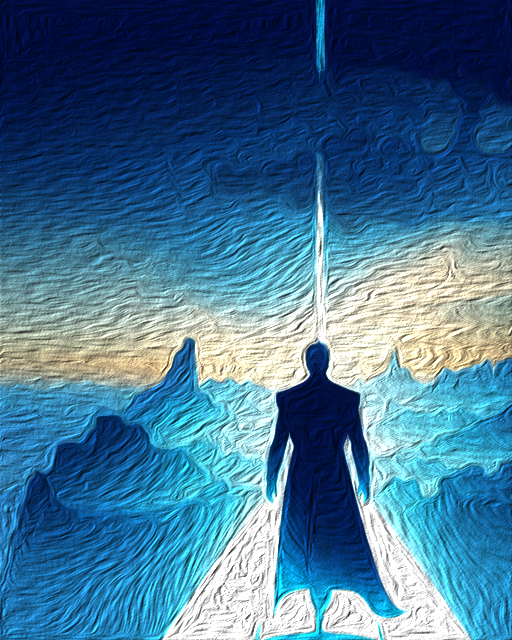
But here is the dirty little secret that very few ever talk about when it comes to change:
We all like to talk about ‘change, change, change’, precisely because we find it so hard to do it ourselves.
As psychotherapists say, ‘It’s psychological projection’…
There’s so much talk about the worries of ‘climate change’, or ‘political change’, or ‘social change’, precisely because we feel helpless about how we can personally change. (So why not try to change the world outside of us instead?)
Like the Russian novelist Leo Tolstoy observed two centuries ago,
“Everyone thinks of changing the world, but no one thinks of changing himself”
(By the way, Tolstoy did not live to see that, in fact, a few decades after his death, Russia’s generation of unchanged people did eventually come to ‘change their world’. In 1917, they established the very first communist state, the Soviet Union. And the rest is, as we say, ‘bloody history’…)
But let’s consider then this question…
Realistically, how likely is an average person to change their life, by design?
I mean, beyond the clichés, platitudes, and tired expressions about making life changes – how capable are we to really do it?
Because here are the actual facts on the matter:
Surveys show, for instance, that 98% of people who make New Year’s Resolutions never complete them, and for most people, resolutions fizzle out in just one week. Of the people who set formal goals, 93% also failed to reach them.
But let’s take this life change proposition one step further. Let’s go beyond the New Year’s Resolutions or the fashionable goal-setting workshops on offer… (for one may argue that they’re just decisions made based on the mood of the moment, so of course they don’t really work).
But what if you had a Huge Reason – a Do or Die Reason instead? How likely are we to change then?

Well, here is a shocking fact – there was a major research, as covered in the book, ‘Change or Die’, that tracked the success rate of people who had a near-fatal heart attack.
As a result, doctors intervened with the urgent recommendation to change one’s diet. The patients were given all the information they needed about what to eat and what not to eat. And they were also warned that if they don’t follow this new diet plan, they will most likely die.
So with this real ‘change or die’ setup – how many people do you think are able to change their diet for the long term?
As research discovered, in the long term, only 1 in 10 people could! The other 9 in 10 could not, even though making this change had death itself as the ‘great motivator’.
The majority failed in just a matter of weeks.
So even with the most extreme of motivations – based on medical advice and willpower, 90% of people are not able to change.
Furthermore, consider that changing something like what you eat, is relatively simple to control. Food is a tangible… It’s a material good that you can quite easily regulate. You just need to buy the better foods, and have them available on call. (After all, no one forces you to put bad food in your fridge.)
So if 9 in 10 cannot make this life change, how much more difficult is it then to actually change how you think, or how you speak, or how you feel?
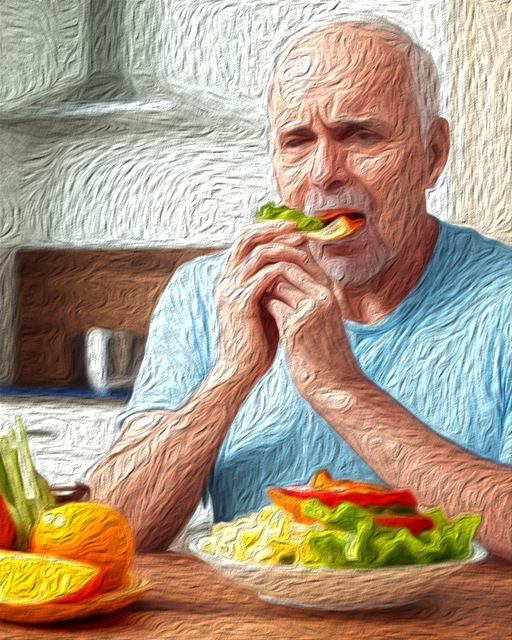
How much more slippery is it to change intangible things like these upon which our entire quality of life depends?
For, while it seems like almost everyone has some advice for what changes we need to make to live a healthier, more fulfilling life – armed with all these ‘facts and suggestions’ – the odds are very, very small indeed that most of us will do anything with them. Ever.
But you probably already know this from your personal experience.
The truth is that while everyone talks a ‘good game’ – the dirty little secret that few acknowledge is that…
Mastering Yourself Is the Most Difficult Thing in the World.
Yet nevertheless, it’s also the most necessary thing. For it’s on this change alone, that all other changes can be properly made.
Which begs the question – what can we do about it?
How can we empower the changes we want, for good?
As leaders, is there something more that we can do to positively influence changes? (and not just engage in empty talks)?
Change the ‘Operating System’ of Your Soul
To answer the questions above, I want us to consider something different… i.e.
Genuine life change begins only when we go to the root cause of all life change efforts.
 That is, when we address the way that we are motivated in the first place – in what strikes us as meaningful to do, to think, and to be.
That is, when we address the way that we are motivated in the first place – in what strikes us as meaningful to do, to think, and to be.
After all, all change efforts come down to the question of how motivated you are to do or not to do something.
Are you afraid to do something? Don’t have the ‘self-esteem’ to execute it? Don’t have the energy? Perhaps you can’t be bothered?
There’s a crude saying that, ‘when someone places a gun to your head, then almost all things appear as possible to do’. What you and I can or cannot do, this can change enormously in the context of ‘deadly threats’, doesn’t it?
So the power of fear is a powerful driver for change… We know this much.
But what really drives us when we are powered by freedom instead?
What happens when we live in a free society – where we can freely elect what are to be our choices, without external coercion?
I’d like for you to consider that under this condition, what ultimately drives us is the map of happiness that we have deep within.
Under a condition of freedom, what we freely choose to do (or not to do) is based on what we believe at a gut level will bring us to ‘happiness’.
This is by no means a new idea. Philosophers observed thousands of years ago that happiness is the ultimate compass that we have for how we orient our lives.
Whether we are conscious of this fact or not, we all get up each morning and choose to do what we actually do, as a means towards this implicit end.
This is why, if you question any person about their choices – i.e. “why did you do that?” or “what did you do that for?” – and you probe deeper and deeper, we all end up saying the same thing, “because I believe it would make me happy” (or another synonymous word).
 Therefore, if we fundamentally address what we believe happiness is and how happiness comes about, we fundamentally influence our choice of actions.
Therefore, if we fundamentally address what we believe happiness is and how happiness comes about, we fundamentally influence our choice of actions.
Our deep-seated beliefs about happiness are arguably the most important ideas that we have in our psyche. These fundamental ideas orient and frame our entire life.
Why? Because happiness is the grounding for our entire range of motivations. It is the fountainhead – the emergent framework upon which all other ideas rest.
As such, it’s useful to think of this internal map as being like the ‘operating system’ software that computers use.
In case you’re not familiar, the operating system (or the O.S.) – this is the overarching software that commands, manages, and organizes the entire range of electronic components (or the hardware) of a computer.
(On PCs, this software is known as Windows; on Apple computers, it’s macOS; while on most mobiles and smart TVs today, it’s Android.)
The operating system is the foundational software upon which all other applications then build on top of – whether this application is a word processor, a video editor, a dictionary, a game and so on.
The OS, in fact, determines what kind of applications can or cannot run in the first place. This is why when you purchase any kind of software or app, the appropriate OS must first be there; otherwise, the application will not run (and sometimes not even be recognized).
The Two ‘Operating Systems’ Of Your Soul
The internal operating system of a human being is founded on their beliefs about happiness.
The core, unconscious ideas that we have about happiness trigger our entire range of motivations that instinctively guide us towards:
- what success and failure mean;
- what we think is of value in this world, (inclusive of our own self);
- what love is; what freedom is; what hardship means and how we are to respond…
and so on.
This foundational human operating system manages and integrates all dimensions of self. It determines how we organize our lives in order to find fulfillment, practically – i.e. what is happiness for the body, the mind, and for the social-spiritual dimensions of self.
In short, the decisions and choices that we make or don’t make in life build on top of this hidden operating system. And like with computers that have a dated operating system, you cannot run certain ‘life changes’ (i.e. new applications) without the supporting OS behind it.
In the feature documentary, we covered that there are two main operating systems that we have when it comes to our pursuit of happiness (i.e. the belief system from which we make decisions):
 1. The Aesthetic – where we believe our happiness emerges from pleasure or making your life feel good; or
1. The Aesthetic – where we believe our happiness emerges from pleasure or making your life feel good; or
2. The Ethical – where we believe our happiness comes from our self-actualization or by integrating Being values through your choices.
Whether you have primarily an Aesthetic or Ethical O.S., this will determine the entire range of applications that you can or cannot run, in your life.
For example, just consider the prior case for instance, where a heart-attack survivor is given the instruction by their doctor to eliminate certain foods from their diet, and why 9 in 10 fail.
If the existing operating system is primarily aesthetic – how likely is a change effort to stick? After all, someone is asked to give up foods that previously brought pleasure, and instead are asked to eat things that are somewhat ‘unpleasant’.
This reminds me of the joke once told by Johnny Carson:
“I knew of a man who gave up smoking, drinking, sex and rich food.
He was really healthy, right up to the day he killed himself.”
If a change effort contradicts what we fundamentally believe at our core to be our happiness in life, we can only go so far, and only for a certain time.
Like an internal elastic band that we stretch against our core beliefs, the further we stretch ourselves into the realm of the ‘unpleasant’, the stronger the pull to snap back becomes.
And by ‘belief’ I don’t mean what we ‘say’ with the mouth – but what we believe at a gut level, and manifest in our actions. We demonstrate our actual beliefs, by how we act, and not really what we say.
 This is often a tricky thing to understand, so let’s put it this way… Imagine a good friend of yours gave you a call, and he emphatically told you that you have a wild, man-eating tiger in your bathroom. He then requests of you, “please, believe me”.
This is often a tricky thing to understand, so let’s put it this way… Imagine a good friend of yours gave you a call, and he emphatically told you that you have a wild, man-eating tiger in your bathroom. He then requests of you, “please, believe me”.
The true test for whether you believed this or not, is not whether you said, “Yes friend, I believe you”.
The real proof of belief is whether you rang up wildlife services and refused to go anywhere near the bathroom. If you actually opened the door to check if a tiger is in there, you did not really ‘believe’. Deep down, you believed he’s probably pulling your leg.
Belief as such, is that gut level ‘truism’ you and I have about reality.
In the same way, our deep-seated operating system about what happiness means is not revealed by our words, but by our actions and what our life choices have to say about it.
So if we return once more to the ‘Change or Die’ scenario we started with, (i.e. about the man who had a heart attack, and was told by his doctor to change his diet), we can infer and predict the following…
In the above scenario, if one is aesthetically grounded – that is, their happiness in life is to maximize pleasure – when a doctor says that in order to live longer, one ought to give up rich foods, for instance, inevitably this creates a major dilemma.
On one hand, there’s the pleasure of living for longer in the long term, but on the other hand, this conflicts with the short-term happiness of pleasurable food today.
So from this point on, one’s motivation is in continual conflict. For if happiness is pleasure, to purposefully exclude the very things that brought enjoyment prior is, like Johnny Carson put it, a recipe for wanting to kill yourself…
When the operating system (O.S.) is aesthetically grounded, the system is set to crash. That’s because with this new change, one’s pursuit of happiness now pulls in two different directions.
In systems theory, it’s called the oscillation dynamic – a yo-yo-like effect of running away from one pain, then into another pain, and then back again to where one started… Mapped across time, this most often plays out something like this:
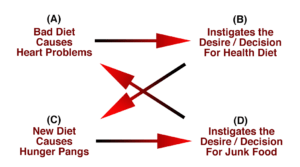
When the heart attack experience happens (painful now) –> this instigates the desire to change one’s diet (pleasurable future);
The new diet causes hunger pangs (painful now) –> this instigates the desire to eat junk foods (pleasurable future);
Eating junk foods causes one to feel their heart problem (painful now) –> this instigates the desire to return to a healthy diet;
And so this ‘figure 8’-like loop goes on indefinitely… From (A) to (B) to (C) to (D) and then back to (A).
But now let’s consider what it would be like to have an ‘Ethical O.S.’ by contrast:
 What would happen if a person had connected at a gut-level, a belief/ a knowing – that their happiness emerges whenever he or she pursues their ethical growth and self-actualization instead?
What would happen if a person had connected at a gut-level, a belief/ a knowing – that their happiness emerges whenever he or she pursues their ethical growth and self-actualization instead?
Well, if this is the case for how they process their happiness, then this person could give up the pleasure of rich foods long term – because their happiness could now emerge from the formation of greater self-control or temperance in life, instead.
In the above scenario, the decrease in short-term pleasure would be offset by the happiness of virtue formation. And so this person would be able to stick with these new changes, long term.
Upon an Ethical O.S., the application of running a new, less pleasant tasting dietary change, (i.e. the new software app), this can now install congruently. That’s because on this O.S., one’s happiness is not only not diminished, but can instead be further enhanced.
The Ethical Happiness framework is superior to the Aesthetic because it enables countless positive changes while still being able to enjoy pleasures in the right order.
For here, one is no longer chained to the pull of pleasures and their unruly wants. With an Ethical O.S., one is able to manage their own pleasures, and in certain cases, be empowered to choose against them – if this is of greater benefit to one’s personal well-being, or their family, their community, their world.
It is only with this framework, as Mahatma Gandhi put it, that we can become the change we want to see in our world.
It is with an Ethical O.S. that we can be the kind of role model, where we influence through our example and excellence – and not just through mere ‘techniques’ and ‘hacks’.
Which brings up the question, ‘How do we do this?’
“How can you update the aesthetic O.S., to a genuinely ethical view of life?”
Which brings up the question, ‘How do we do this?’
“How Can Your Update the Aesthetic O.S., To a Genuinely Ethical View of Life?”
The Four Faculties Framework:
Tetradynamics and How to Make Meaningful Changes
 Like featured in ‘The Great Aha!‘ documentary, back in 2009 when I was out on Ben Lamond mountain, it dawned on me that…
Like featured in ‘The Great Aha!‘ documentary, back in 2009 when I was out on Ben Lamond mountain, it dawned on me that…
Ethical happiness is not just a higher mode of being, but it is a mode of being that is uniquely available only to humans and the faculties we uniquely have.
What does this mean? Well, let’s put it this way:
The standard view for how humans and animals process our world, as taught in social science, is through the stimulus-response model.
In brief, it states that when a stimulus is presented to an animal, this stimulus (or event) produces a particular response in the animal, which in time ‘conditions’ the same tendency in the future.
This is the basic mechanism for why we do what we do.
The Stimulus-Response model is composed of four basic animal faculties – the faculties of sensation, perception, emotion, and motor powers.
So, as the diagram below shows, we first notice a stimulus in our environment with our Sensory Faculty – let’s say by seeing and smelling a ‘hot dog’. This raw sensory data then enters our Perception Faculty, which interprets what these light patterns and smells represent – perceiving the data as a whole, as a ‘hot dog’.
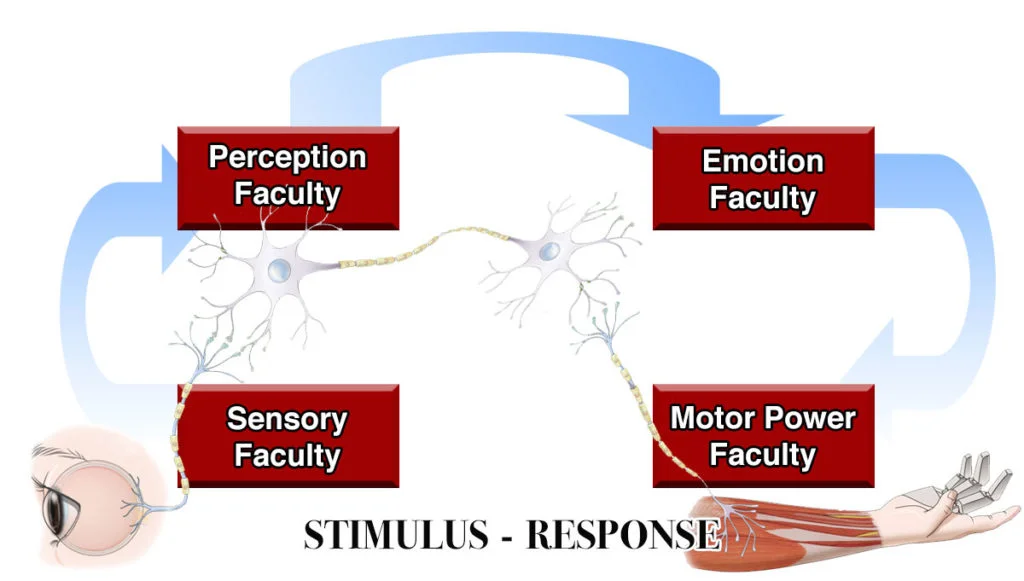
The perception of the hot dog then enters our Emotion Faculty, from which we then derive a feeling as to whether this object leads to a feeling of relative pleasure or pain. If pleasurable, the emotion gives us the impetus to move towards the hot dog, or if painful, we get the impetus to move away from it, (or if somewhere in between, in being indifferent…)
From this emotional push, we then proceed to act with our body – we engage our Motor Power Faculty – where if a hot dog means pleasure because of its taste or hunger, we stretch out our hands and grab it, if we’re neutral we walk right past it, or if we’re repulsed by it, we may complain about it.
Furthermore, if this is the very first time in life that you encountered a hot dog, (the ‘x’ sensory object), the way you perceived, felt and responded to this, (the ‘y’ response) – this automatically, without any conscious control, links up in the brain. So that if sensation ‘x’ happens again, you’re more likely to behave in exactly the same way as before, with ‘the y response’ .
With further follow-up stimulus-response events of the same kind, the neuron links thicken and form strong cable-like connections between these two instances, making it less and less likely to respond in any other manner.
 This is a a very simplified explanation, of course, but in essence, this is the science and practice of ‘classical conditioning’. The physiologist Ivan Pavlov demonstrated this in action, with an ingenious, simple experiment…
This is a a very simplified explanation, of course, but in essence, this is the science and practice of ‘classical conditioning’. The physiologist Ivan Pavlov demonstrated this in action, with an ingenious, simple experiment…
Pavlov set up a test, where several dogs, on a leash, awaited their next meal. The dogs would see and smell the food coming, they would perceive these sensations as food, they then anticipated the pleasure that food would bring about, and so, the dogs’ motor response was to salivate in eager anticipation.
But as these dogs were salivating and engaged in this whole stimulus-response arc, Pavlov also blew a whistle. At the next meal, he blew the whistle again. And so with the meal thereafter…
Once a few experiences like these were repeated, the food was not given at all, and only the whistle blew. And sure enough, the dogs were now fully salivating – even as the ‘whistle’ had nothing to do with a hunger response.
The entire stimulus-response arc got neurologically linked to the whistle, so the same pleasurable response became automatic.
Furthermore, these dogs now had a permanent new disposition to associate pleasure with the sound of a whistle, which they could not change.
As such, because we’re also members of the animal kingdom, and have the same faculties, we can also be conditioned by linked up events/ stimuli that bring us pleasure.
 Think of what advertising does. In essence, it links a product with pleasurable ideas and imagery. And when this advertisement is repeated over and over again, the consumer forms a new stimulus-response-like chain in the mind. (i.e. beautiful woman + product = new desire)
Think of what advertising does. In essence, it links a product with pleasurable ideas and imagery. And when this advertisement is repeated over and over again, the consumer forms a new stimulus-response-like chain in the mind. (i.e. beautiful woman + product = new desire)
Linking happens through the quality or the number of pleasurable associations, or both. You can create links with very strong pleasurable sensations, or through repeated experiences of pleasure, or strongest of all, to have both things happen – to have many strong pleasures, repeated many times.
Thus, someone who is addicted to drugs, for instance, inevitably experiences strong pleasure while intoxicated and has done so often in the past. The stronger this connection occurs at a neurological level, the more compelled or ‘addicted’ this person is to repeat that action and unable to stop themselves.
(This can be very troubling, especially because it interferes with other pleasures in life, such as good health, good friends, a good job, and so on...)
At its core, this is also the reason why our efforts to make changes are often difficult to break and why most people fail in their attempts. Our past conditioning with pleasure (or the absence of pleasure through suffering and pain) can shape and determine our destiny at a neurological level.
Thus, herein lies one of the great tragedies of human existence –
we are forced (or enslaved) to follow the path of our past conditioning,
despite what we would consciously want to do otherwise.
 This is also in a nutshell, the mechanism of Aesthetic Happiness as an operating system in action. In this mode of operation, we organize our lives so that we can experience more and more pleasurable connections – whether we elect this consciously, or as most often it happens, is driven unconsciously by our stimulus-response mechanism.
This is also in a nutshell, the mechanism of Aesthetic Happiness as an operating system in action. In this mode of operation, we organize our lives so that we can experience more and more pleasurable connections – whether we elect this consciously, or as most often it happens, is driven unconsciously by our stimulus-response mechanism.
This works out okay at times, and at other times, it leads to uncontrollable compulsions that conflict with other pleasures that we also want (like with the case of a drug user, for instance).
This is also our default or base mode of being. We share this operating system with other evolved animals as well. And so, we can simply live out our lives like animals and be mere ‘creatures of conditioning’.
Psychologists like B.F. Skinner and his behaviorism school turned this idea into an entire field of science and practice, for both humans and animals. In many circles, this is also the dominant theory about human nature, and it is applied in countless arenas – from therapeutic practice to education, to politics, to economics, etc.
But what is not commonly known – and what’s sometimes even actively suppressed – is that we as human beings are not ‘mere animals’. Unlike all other animals, the makeup of a human being is solely unique. This stimulus-response model may restrict us, but it does not define us.
Unlike all other animals, we have the power to break free from the bonds of conditioning.
Humans are the only animals on the planet that have the power to consciously change their own stimulus-response mechanisms.
Unlike all other animals, we do not have to live out our lives as our environment has programmed us neurologically. We have the ability to create our own stimulus-response mechanisms by choice.
We have the power to direct and create any number of stimulus-response mechanisms that we choose, through self-initiated design. We can live beyond the influence of these mechanisms, so to speak.
Most importantly, it is through breaking free from our conditioning that we truly express the essence of being fully human. This ability to transcend the Aesthetic Realm is our unique gift or potential. And what enables us to do this is…
 The Four Faculties Framework
The Four Faculties Framework
Unique to Humans
We human beings have four additional faculties that no other animal in the world possesses. These faculties enable us to dismantle the stimulus-response bonds and achieve a breakthrough. These faculties are:
1. imagination
2. awareness
3. reason
4. will.
We can break the bonds of our conditioning with these faculties because:
1. We can imagine new alternatives in our mind and what we could be doing instead…
2. We can become aware of this stimulus-response mechanism, how it operates, and stand as if outside of it, observing it in a detached way…
3. We are able to reason as to whether this conditioning we made is a good thing or it’s something that detracts us from a higher good…
4. We are able to choose a higher meaning for the long term, despite the short term pleasure pay off (i.e. thus the perspective of ‘sacrifice’ in human culture)
The Four Faculties of Our Fundamental Freedom
It is with these four faculties that we can break apart stimulus-response links. Thus, we can leverage these four faculties to change how we feel about things, and thus drive new actions that can support us, by design, rather than environmental default. (see diagram below)
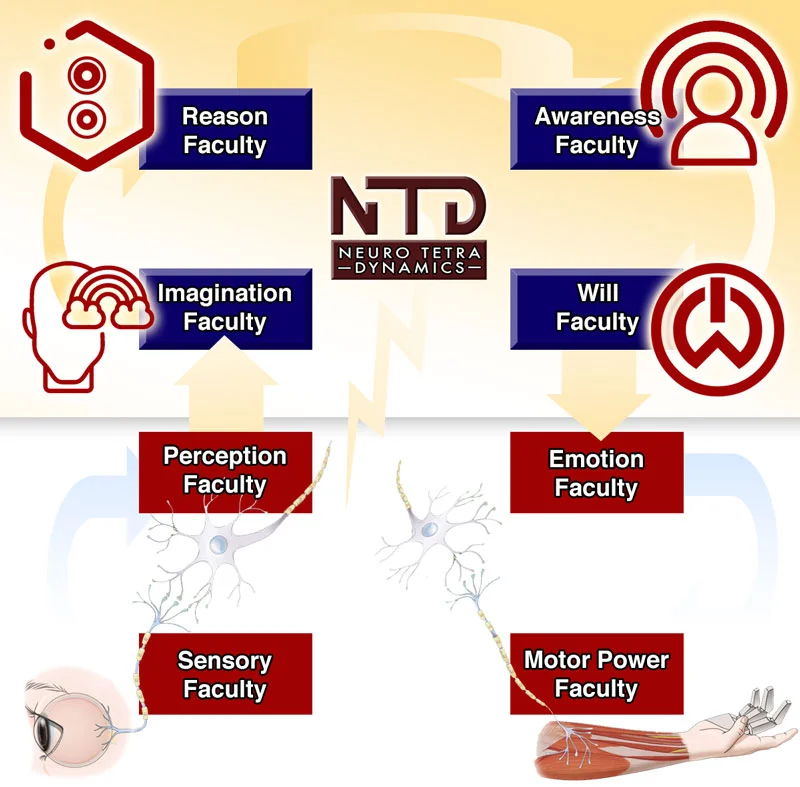
These four faculties are, in essence,
the four active ingredients behind any and all change efforts.
Whenever a change effort works – whether it’s through counseling or self initiated effort – it’s because one or more of these faculties were leveraged in the process.
This is our higher Four Faculties Framework, which for simplicity I’ve called, our tetradynamics – tetradynamics coming from the Greek words ‘tetra’ meaning four, and ‘dynamos’ meaning power or faculty.
Animals do not have these higher four faculties. As such, whenever the stimulus-response link is established within an animal, the animal is limited by its conditioning (like with the ‘whistle-salivate’ response in Pavlov’s experiment). That is, an animal…
– Cannot imagine a different alternative, like enacting something different as a response
– It has no self-awareness that this conditioning process is even happening – two instances like food and whistle form an integrated perception, and the process is not ‘witnessed’
– It cannot reason that this is a ‘conditioned response’ and a very inefficient one at that, because it uses up saliva;
– It cannot will into action a new response, and so it just behaves in line with the conditioning entrained upon it.
Another way to say this is that a dog cannot take ‘responsibility’ for the conditioning it is subject to. Animals are not ‘response-able’. They are not able to change their conditioned links by choice.
By contrast, a human can and often does, because a human being is of a higher order. This is why Shakespeare wrote…
 “Oh, what a piece of work is a man!
“Oh, what a piece of work is a man!
How noble in reason, how infinite in faculty,
in form and moving how express and admirable,
in action how like an angel, in apprehension how like a god
– the beauty of the world, the paragon of animals ”
Our Ethical Happiness O.S. is built on this Four Faculties Framework, on this Tetradynamic.
For what ultimately these four faculties create for us, are passageways into the ‘transcendentals’ – the properties of our Authentic Being – i.e. goodness, truth, beauty…
And what is ethics but our deep yearning to integrate more goodness, truth and beauty into our lives, and into our world?
These four faculties connect us with the realm of the Ethical, because…
- with our faculty of Imagination, we connect with Beauty;
- with our faculty of Reason, we connect with Truth;
- with our faculty of Will, we connect with Goodness;
- and with Awareness, we connect with our Being.
It is these four faculties that form our best virtues. These faculties are the means by which we can become more reasonable, more loving, more creative, more courageous, more self-controlled… etc.
And what else do we even mean by the idea of making ‘life changes’, but other than to become more fully ethical? That is, to change in order to move further upwards into our ethical potential in being, so we are able to express more beauty, reason greater truth, choose the higher good…
These four faculties are so magnificent and unique in the history of the universe, that technically speaking, in the tree of life, these four faculties set the human being in an entirely new order of creation.
 The difference between animals and humans is not merely trivial. The fact that we have these four faculties gives us four more faculties than animals have at their best. This is an order difference as large as the one between plants and animals themselves – a difference as large as the one between a cat and a cactus!
The difference between animals and humans is not merely trivial. The fact that we have these four faculties gives us four more faculties than animals have at their best. This is an order difference as large as the one between plants and animals themselves – a difference as large as the one between a cat and a cactus!
Therefore to treat a human being as merely an animal, to be ‘conditioned’ – whether in politics, education, therapy, and so on – this is a grave error and injustice. It’s like the equivalent of treating an animal as if it were a mere plant.
The difference between a human being and other animals is not trivial, as we’ve been misled to believe. We desperately need to update the map that says we’re merely animals, to just be trained with pleasure and pain. For this kind of ‘donkey motivation’ of carrot and stick has turned so many into ‘asses’. (Think of the story of Pinocchio and his trip to Pleasure Island…)
Perhaps this is why the father of psychology himself, William James lamented that,
“Compared to what we ought to be we are only half awake.
We are making use of only a small part of our physical and mental resources.
Stating the thing broadly, the human individual thus lives far from his limits.
He possesses the power of various sorts which he habitually fails to use.”
The Great MisEducation of Today
As astonishing as this insight is, these four higher faculties have never really been seriously researched by our social sciences.
Because these four higher faculties connect us with a transcendental order (and thus, what this could imply about human nature), these faculties have often been ignored, or they are only superficially dealt with and distorted, so they fit in with the human-as-mere-animal worldview.
Just consider how much time you have spent in education, to be informed about what makes humans unique and special in our world?
And consider how much time you spent being ‘educated’ about how similar our nature is to that of other animals? Or that humans are even worse animals?!
As Professor Martin Seligman, one of the leading thinkers and activists in the field of psychology today who advocates for a fundamental change, wrote in his book ‘Flourish’:
“Originally, I went into psychology to relieve human suffering and to increase human well-being. I thought I was well prepared to do this; but I was actually miseducated to this task.
It took me decades to recover and to work my way out of solving puzzles and into solving problems. (pg. 55) …
I mentally scanned (serially) the tenured faculty in the ten leading psychology departments in the world. Not a single one focused on work, or on love, or on play. They all worked on ‘basic’ processes: cognition, emotion, decision theory, perception. Where were the scholars who would help guide us about what makes life worth living?” (pg. 59)
* * *
It took me decades to recover and to work my way out of solving puzzles and into solving problems. (pg. 55) …
I mentally scanned (serially) the tenured faculty in the ten leading psychology departments in the world. Not a single one focused on work, or on love, or on play. They all worked on ‘basic’ processes: cognition, emotion, decision theory, perception. Where were the scholars who would help guide us about what makes life worth living?” (pg. 59)
* * *
Yes, humans walk on the moon, send robots to Mars, smash atoms to take quantum photographs… or compose and perform Beethoven Symphonies, design and build Vatican buildings, write and produce Lord of the Rings films, and so on – yet academic ideology still preaches the mythology that humans are really just slightly different from baboons!
From primary school and thereafter, mainstream education has conditioned us to think that we humans are nothing more than a ‘naked ape’. That we are just an upright walking ape, which just happens to be a bit ‘cleverer’ because of its opposable thumbs, and we just ‘happen’ to speak…
 In most corners of the world, this miseducation is the standard, government-approved, and enforced teaching. Worse still, with this toxic ideology, this has created a whole new generation of people who secretly (and not so secretly) wish that all humans would perish so that Earth would be returned to nature instead (since humans are the ‘worst’ of animals, you know).
In most corners of the world, this miseducation is the standard, government-approved, and enforced teaching. Worse still, with this toxic ideology, this has created a whole new generation of people who secretly (and not so secretly) wish that all humans would perish so that Earth would be returned to nature instead (since humans are the ‘worst’ of animals, you know).
This is why in most academic circles today, it remains as an unassailable dogma that our sciences ought to help – by just appealing to our lowest faculties, and our animal nature only. This ideology drives the sciences themselves!
And of course, the proof is in the results:
- Since waging war on mental health in the Western World, this war has mostly seen increased mental problems, not fewer. There are more classifications of mental illness, and many more cases of it. There are also more drug discoveries, and many more people taking drugs.
- And most tellingly of all, those who are on the front lines of mental health and social improvement – in their own lives – do worse than the statistical average, not better! It’s as if we’re happy to get fitness advice from someone who sits on a couch all day…
So coming back from where we started – how can we then not have the problem of mass sedation, as it stands today?
When this is the cultural norm, when this nihilistic view of human nature dominates, why wouldn’t an average person want to tune out this view of life and to get ‘out of the mind’?
Has not this old, nihilistic view of human nature run its course?
Has not this social experiment been done enough, that we can predictably see where it’s going next?
A Leader’s Crabbing Move
Viktor Frankl, the famous psychiatrist behind the classic book, ‘Man Search For Meaning’, once shared this little gem of wisdom:
“I started taking flying lessons recently. And do you know what my flying instructor told me?
If you start here (position A, West), and wish to get here (position B, East), and you have a cross wind from the North, you will drift and then land somewhere in the south.
So you have to do what pilots call, ‘crabbing’. You have to head north of the airfield, above where you’re trying to arrive and fly that way and then you’ll land at the Eastern airfield. But if you aim for East, you will end up South.
This holds also for man I would say. If you take man as he really is, we make him worse.
But if we overestimate him, to be idealist and over rate man – looking at him as being high, above – we promote him to what he really can be. …
And you know who has said this? If we take man as he is we make him worse, but if we take man as he should be, we make him capable of becoming what he can be?
This was not my flight instructor. This was not me. This was Goethe. And this is why I once said, this is the most apt maxim, and motto for any psychotherapeutic activity.
So if you don’t recognize a young man’s will to meaning, you make him worse – you make him dull, you make him frustrated, you still add and contribute to his frustration.
While if you presuppose in this man – even the so-called criminal or juvenile delinquent or drug abuser and so forth – that there must be a spark of ‘search for meaning’, and then you will elicit it from him. And you will make him become what he in principle is capable of becoming.”
* * *
 We, as leaders, need to do the same if we want to become the best versions of ourselves and to help others reach their best selves… We need to direct our four highest faculties towards:
We, as leaders, need to do the same if we want to become the best versions of ourselves and to help others reach their best selves… We need to direct our four highest faculties towards:
- The highest levels of truth that our faculty of reason is capable of.
- The highest levels of beauty that our imagination can conceive.
- The highest levels of goodness that our will can enact.
- The highest levels of being that our awareness can embody.
For in each one of these avenues, when genuinely pursued, we can discover ever new wellsprings of inspiration and meaning.
This has been tried and tested throughout 5,000 years of written history! The cultures that meditated on what is good, true, and beautiful – they went on to then build in stone a Notre Dame or a Taj Mahal… The ones that didn’t went on to create the Dark Ages.
In this time of cultural uncertainty and unease, it’s time to take back our common sense of what makes humans great, once more.
Like Francis Bacon, the founder of modern science methodology put it:
“Human knowledge and human power come to the same thing
– for where the cause is not known, the effect cannot be produced.”
Here at the Center for Meaningful Leadership, we’ve made this our primary mission – to strengthen the highest powers of the human soul – and for this very purpose, we have created the iLifeChange program.
And as we come to the end of our reading here, I’d like to extend to you an invitation to…
Join us in our next iLifeChange Experiment, today.
We guarantee that this program will be like nothing else you have experienced before.
(Just take this program for a test-drive for 30 days, and take advantage of our full ‘love it or leave it’ guarantee)
The iLifeChange Experiment Starts In:
NEXT EVENT DATE:
Wednesday 31st of July 2024 @ 7PM AEST (Sydney/ Melbourne) | 5PM AWST (Perth)
OR Wednesday 10am BST (London) | 9PM NZST (New Zealand)

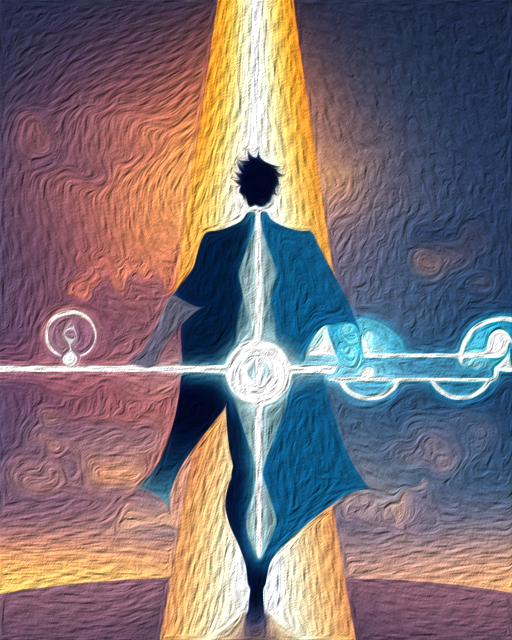

 1. The Aesthetic – where we believe our happiness emerges from pleasure or making your life feel good; or
1. The Aesthetic – where we believe our happiness emerges from pleasure or making your life feel good; or 